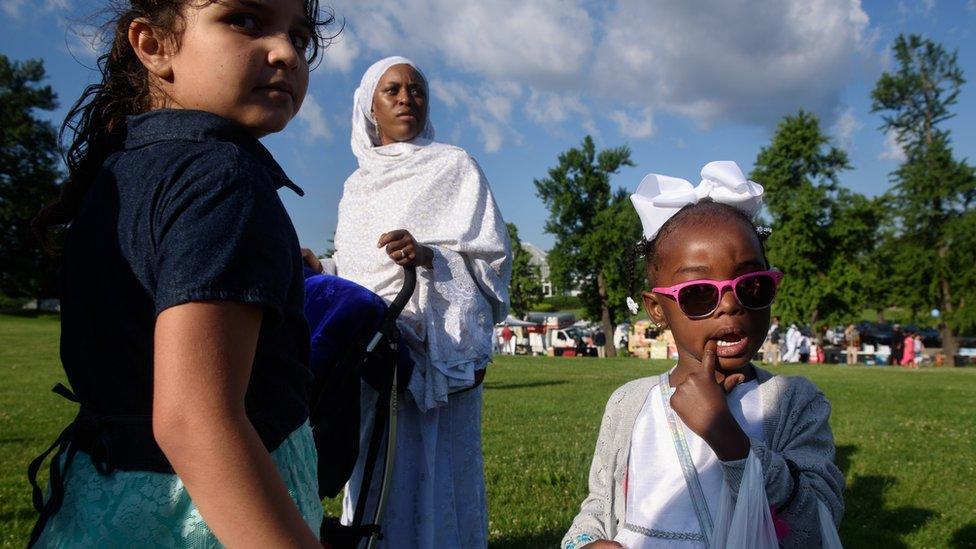Sweden Muslim woman who refused handshake at job interview wins case
- Published
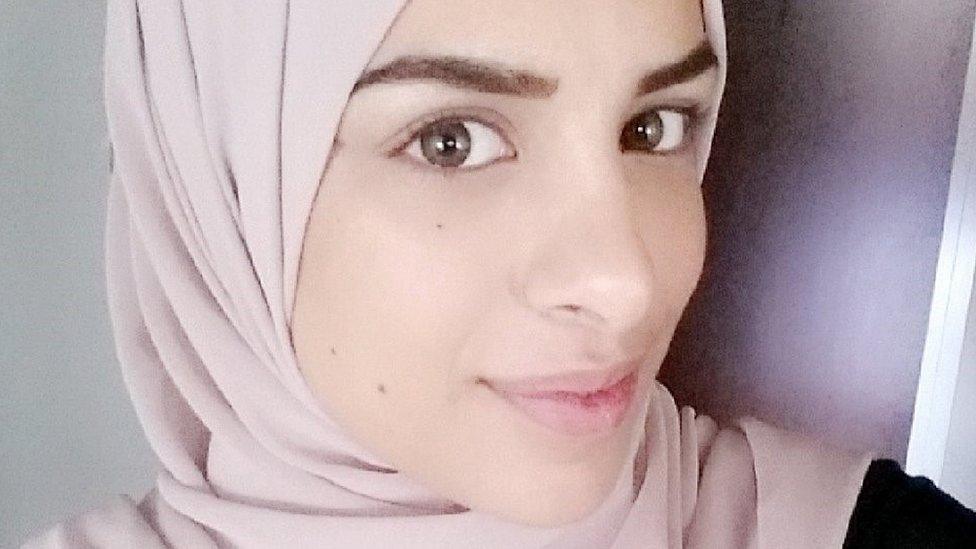
Ms Alhajeh said she brought the case on behalf of others who could find themselves in the same position
A Swedish Muslim woman has won compensation after her job interview was ended when she refused a handshake.
Farah Alhajeh, 24, was applying for a job as an interpreter when she declined to shake the hand of a male interviewer for religious reasons.
She placed her hand over her heart in greeting instead.
The Swedish labour court ruled the company had discriminated against her and ordered it to pay 40,000 kronor ($4,350; £3,420) in compensation.
Some Muslims avoid physical contact with members of the opposite sex, except for those in their immediate family.
However handshakes are traditional in Europe. Additionally, anti-discrimination legislation may forbid companies and public bodies from treating people differently because of their gender.
Sweden's discrimination ombudsman's office, which represented 24-year-old Ms Alhajeh, said the judgement had taken into account "the employer's interests, the individual's right to bodily integrity, and the importance of the state to maintain protection for religious freedom".
What were the grounds for the ruling?
The interpreting company in Ms Alhajeh's home town of Uppsala had argued that its staff were required to treat men and women equally and could not allow a staff member to refuse a handshake based on gender.
But the discrimination ombudsman said she had tried to avoid upsetting anyone by placing her hand over her heart when greeting both men and women.
Sweden's labour court found the company was justified in demanding equal treatment for both sexes - but not in demanding that it be in the form of a handshake only.
Her refusal to shake hands on religious grounds was protected by the European Convention on Human Rights, it said, and the company's policy in demanding a specific greeting was detrimental to Muslims.
The court also disagreed with the firm's assertion that Ms Alhajeh's approach to greetings would cause a problem for effective communication as an interpreter.
However the judges were divided over the case - with three supporting Ms Alhajeh's claim and two voting against.
What did Ms Alhajeh say?
After the judgement Ms Alhajeh told the BBC she believed it was important to "never give in" when convinced that one is in the right, even as a member of a minority group.
"I believe in God, which is very rare in Sweden... and I should be able to do that and be accepted as long as I'm not hurting anyone," she said.
"In my country... you cannot treat women and men differently. I respect that. That's why I don't have any physical contact with men or with women. I can live by the rules of my religion and also at the same time follow the rules of the country that I live in," she added.
She had complained about her treatment to the discrimination ombudsman's office, which said that the "difficult issue" was important enough to go to a court for judgement.

Europe's handshake rows
In 2016 a Swiss school's decision to exempt two Muslim boys from shaking both male and female teachers' hands after they refused to shake the hand of a female teacher caused uproar and led to the family's citizenship process being suspended
In April, an Algerian woman was denied French citizenship after refusing to shake the hand of an official during her citizenship ceremony
- Published11 August 2016
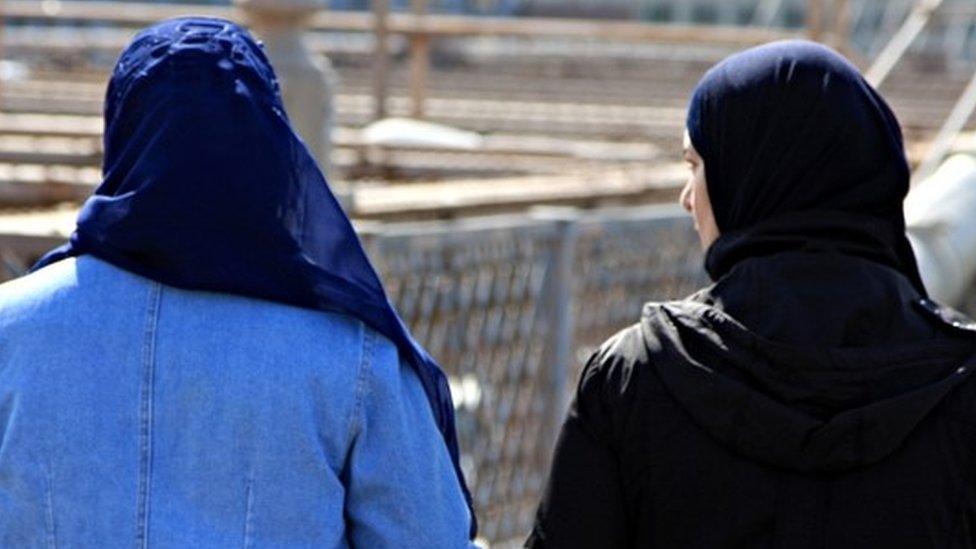
- Published6 February 2017

- Published9 August 2016
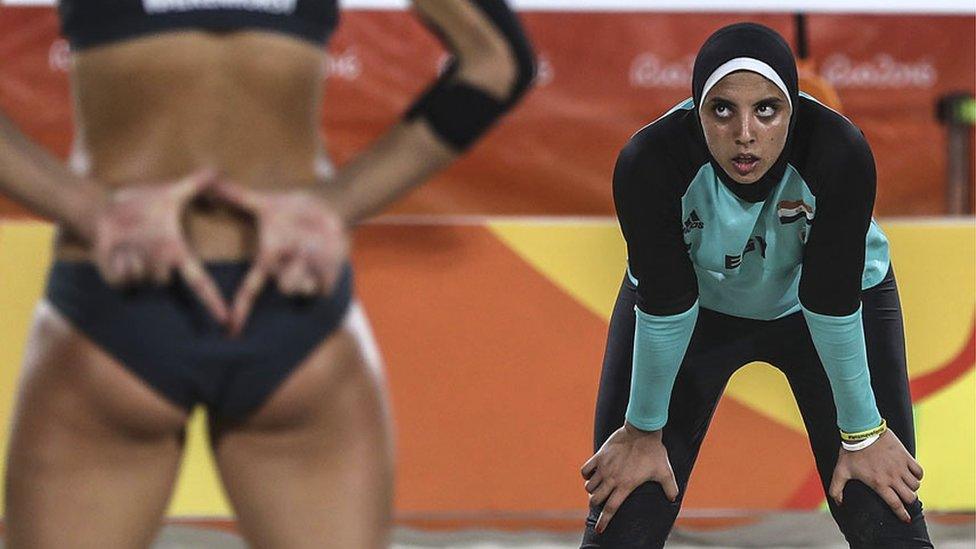
- Published31 May 2018
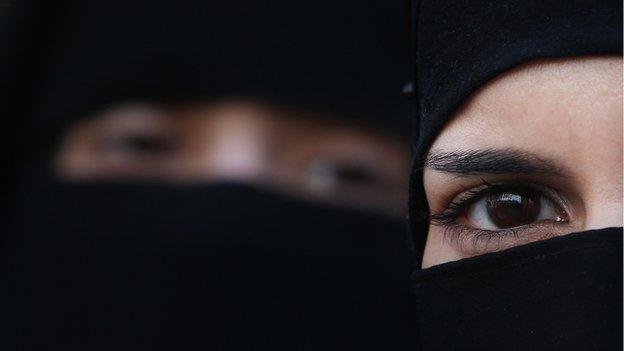
- Published26 July 2017
